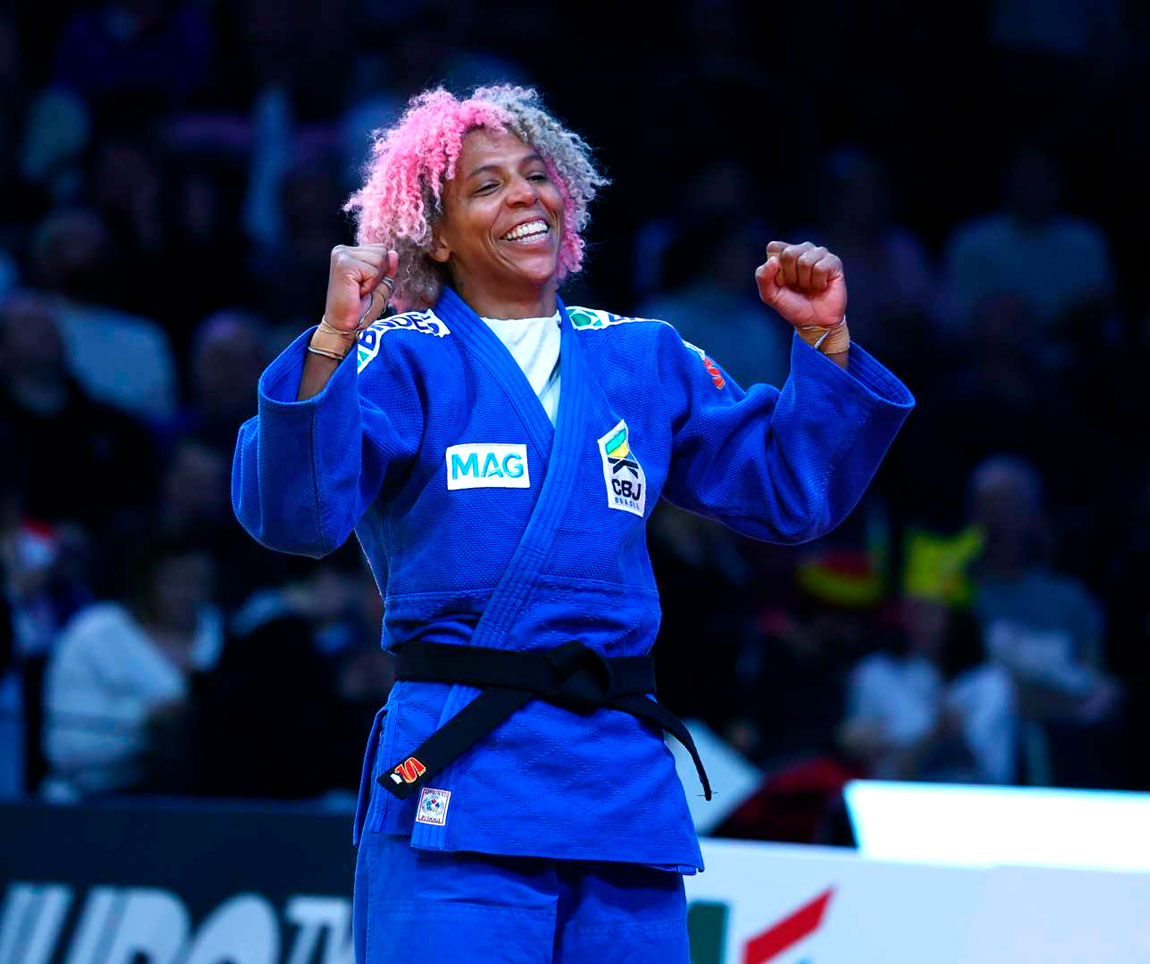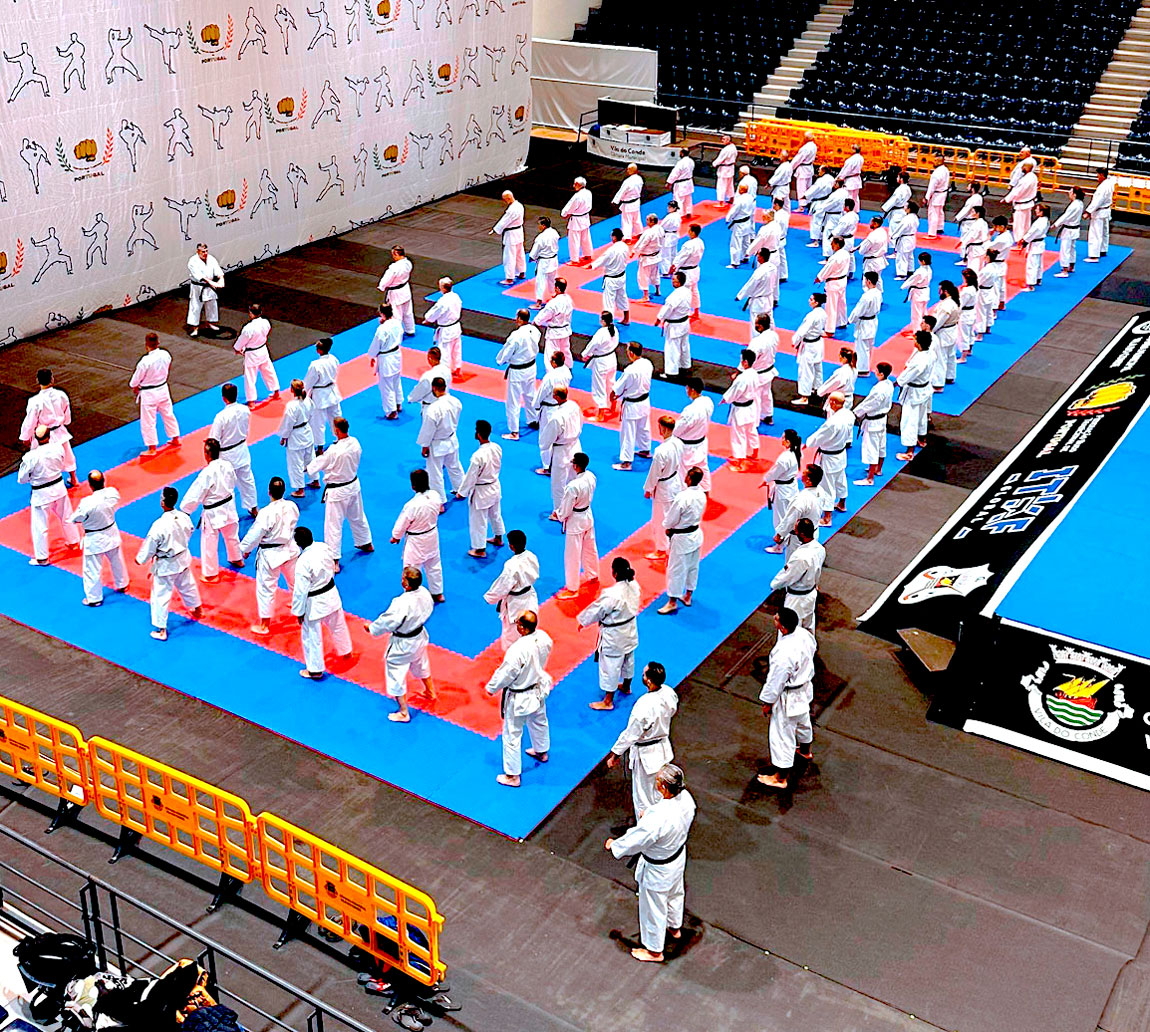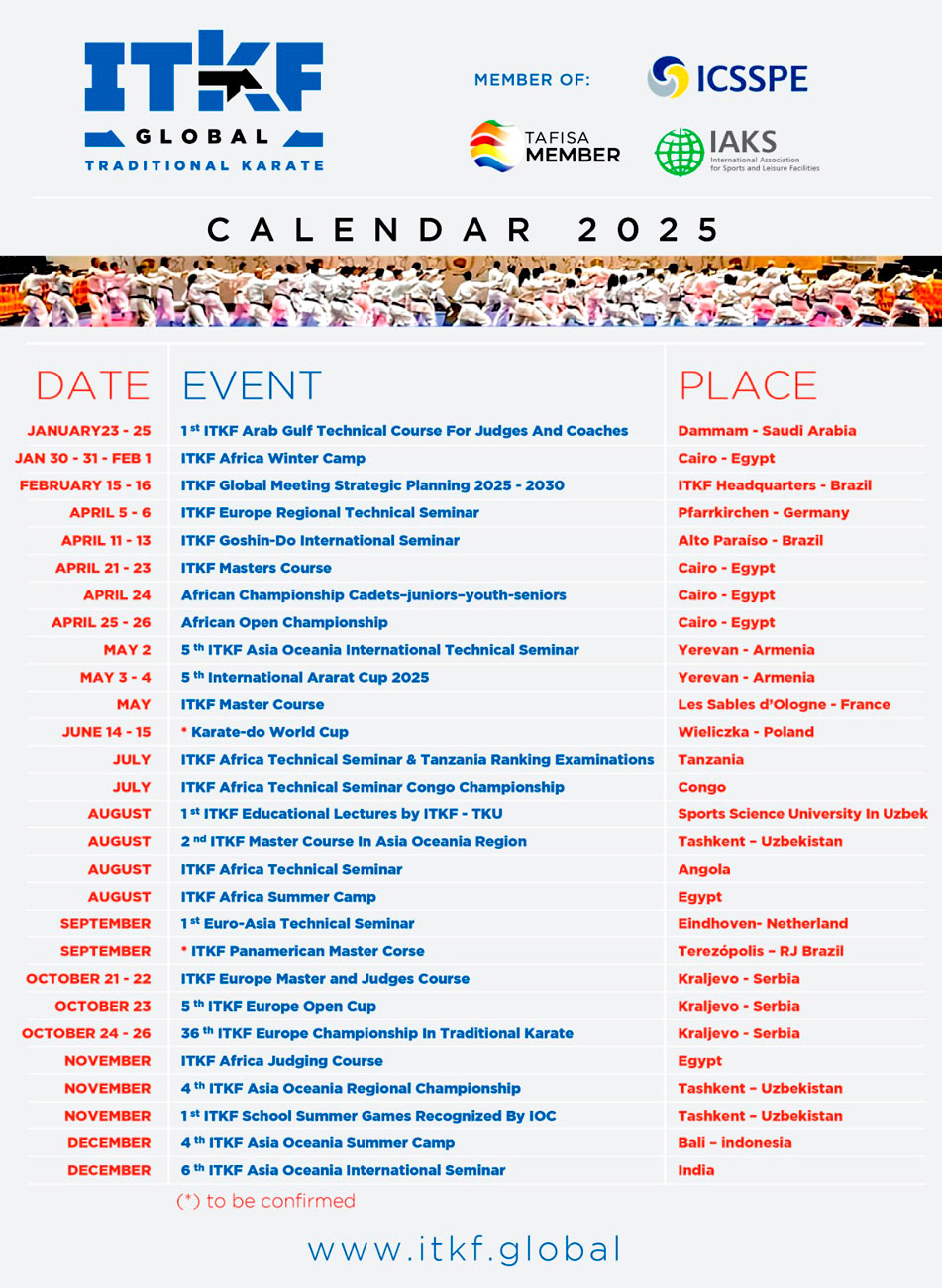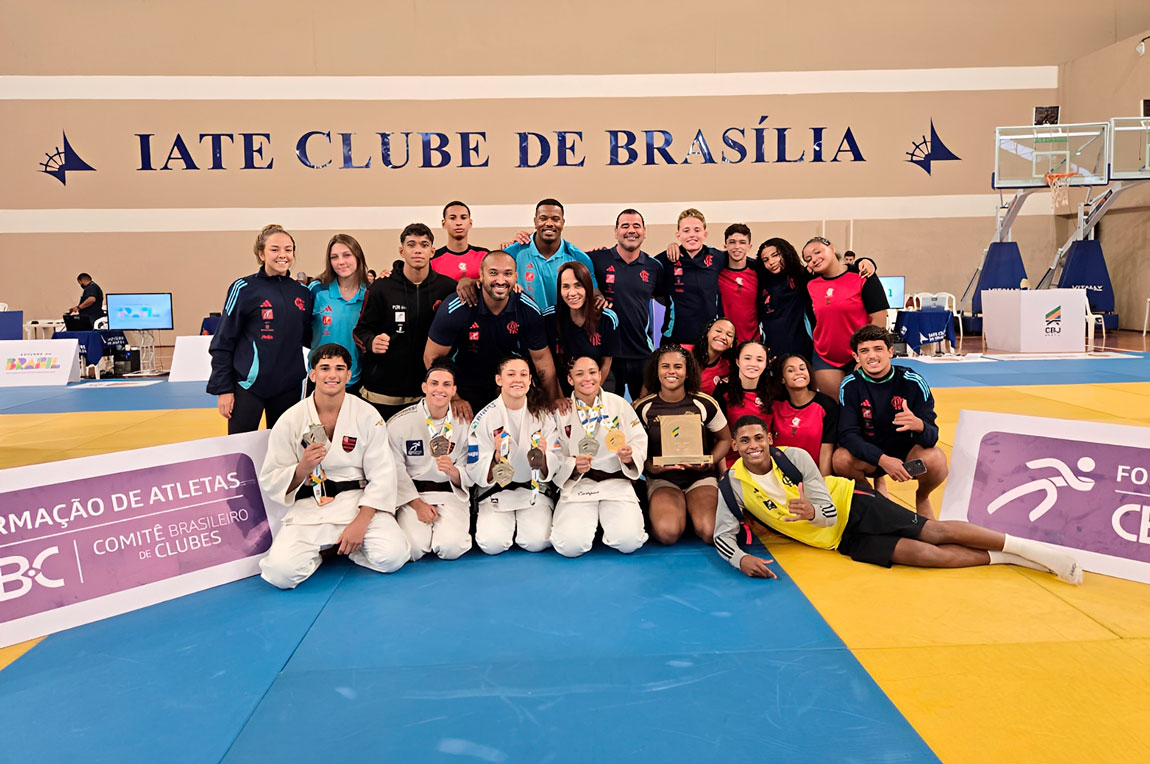08 de fevereiro de 2026

 Masters Course held alongside the World Championship in Portugal © ITKF
Masters Course held alongside the World Championship in Portugal © ITKF
The proposal presented this week by the directors of the International Traditional Karate Federation (ITKF Global) contains 28 events, representing a significant increase compared to the 2024 calendar, which had 22. They will be held on four continents, highlighting the growing expansion and consolidation of the ITKF’s global presence.
Showing the geopolitical plurality of ITKF Global, the 2025 calendar includes events in cities such as Dammam, in Saudi Arabia; Cairo, in Egypt; Pfarrkirchen, in Germany; Yerevan, in Armenia; Les Sables d’Olonne, in France; Wielickza, in Poland; Tashkent, in Uzbekistan; Eindhoven, in the Netherlands; Kraljevo, in Serbia; Bali, in Indonesia; Curitiba, Teresópolis and Alto Paraíso, in Brazil and in Angola, Tanzania, Congo and India.
According to Gilberto Gaertner, chairman of the International Federation, the turning point of this season will be the ITKF Global 2025–2030 strategic planning meeting, which will take place on February 15 and 16 in Curitiba.
“The 2025–2030 strategic planning meeting is a fundamental milestone for ITKF Global. It will be an opportunity to consolidate our vision for the future and discuss innovations that will further strengthen traditional karate as a powerful tool for inclusion and socialization in an increasingly connected and diverse world,” said the leader.
“We are committed to adopting new management tools that make our organization more efficient, agile and inclusive. Our global reach, with events spread across four continents and a calendar full of activities, demonstrates the strength of our federation and the positive impact of traditional karate in communities as diverse as those in Europe, Africa, Asia and Latin America,” continued Gaertner.
The ITKF chairman sees traditional karate as more than a sport; it is a means of building bridges between cultures, promoting ethical values and contributing to the formation of better citizens. “Our presence in cities such as Yerevan, Dammam, Kraljevo, Pfarrkirchen, Cairo and Bali is concrete proof of our commitment to taking the philosophy of traditional karate beyond current borders.”
“With determination, we will continue working so that ITKF Global is increasingly recognized as an inclusive and innovative institution, aligned with the challenges of the 21st century, without ever losing sight of the values and essence of traditional karate,” concluded Sensei Gilberto Gaertner.

ITKF 2025 Calendar © ITKF

08 de fevereiro de 2026

07 de fevereiro de 2026

06 de fevereiro de 2026